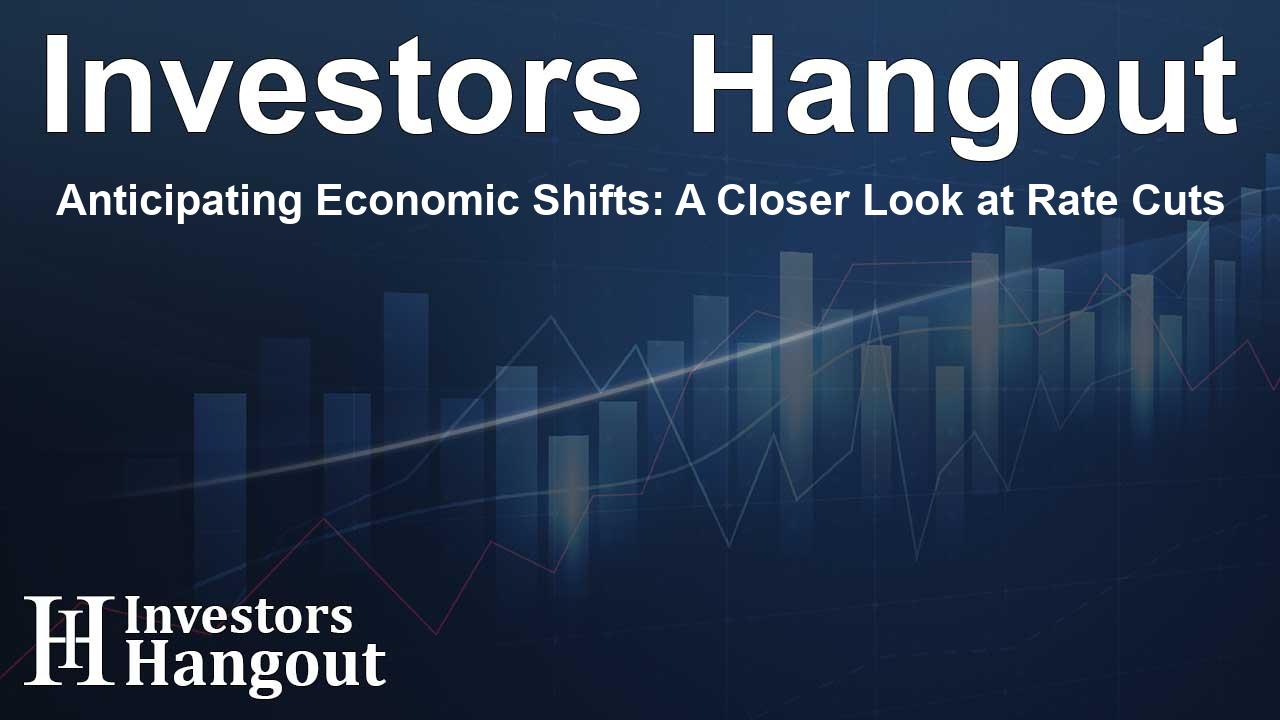Anticipating Economic Shifts: A Closer Look at Rate Cuts

The Future of Federal Reserve Rate Decisions
As economic discussions unfold, Federal Reserve Chair Jerome Powell is expected to speak with the main goal of managing market expectations. The upcoming Jackson Hole symposium presents a critical platform for Powell to address concerns regarding the potential for a September rate cut.
Economic Indicators Pointing Towards Change
The case for a rate cut has recently gained traction due to signs of weakening in the job market, which has been regarded as a pillar of strength for the U.S. economy. The latest labor report indicated a disappointing addition of only 73,000 jobs in July, falling short of the anticipated 100,000. Additionally, significant revisions have found over 250,000 job positions removed from previous estimates, suggesting that earlier employment data may have been overly optimistic.
Job Market Developments
These revisions indicate a concerning trend and shift the narrative surrounding the strength of the economy. With the unemployment rate now rising to 4.2%, the Federal Reserve must reconsider its assessments based on the previous model of robust job growth.
Inflation and Market Response
In addition to labor market weaknesses, inflation data has shown a less alarming trend than previously observed. Recent reports suggest that inflation has undershot forecasts, potentially providing the Fed with an opportunity to pivot towards a rate cut without much backlash from the market. Following these developments, Treasury yields have decreased as investors are adjusting their expectations towards a more dovish monetary policy.
Assessing the Impact of Jackson Hole
Despite the importance of the Jackson Hole symposium, it traditionally serves as a platform for discussing broader economic themes rather than announcing concrete decisions. Powell is likely to emphasize the significance of incoming data and convey that the Federal Open Market Committee operates with a variety of opinions. This approach aims to retain flexibility while guiding the market's anticipation of the Fed's next moves.
Managing Market Expectations
The communication strategy is crucial—markets are highly responsive to the nuances of tone and body language in addition to official policy actions. A firm dismissal of an imminent rate cut could cause fluctuations in risk assets, while cautiously open remarks may fuel continued speculation about the September meeting.
Political Influences on Fed Sentiment
Political elements outside the Federal Reserve also play a role in the narrative. With voices from the White House advocating for lower borrowing costs, it creates additional context that influences market sentiment. It is essential for the Fed to maintain its independence while navigating these pressures, as perceptions can shift rapidly in response to political statements.
Reflections on Future Moves
Current conditions suggest the Federal Reserve possesses more options than previously available earlier in the season. The combined indicators of job market weaknesses, softer inflation, and moderated growth are indicative of changing economic circumstances. Although discussions surrounding rate cuts have intensified, it remains to be seen if they will take immediate action or wait for further clarity from upcoming data reports.
Investor Strategies in a Changing Landscape
For investors, the initiation of a new policy cycle can significantly influence asset market dynamics. Cut sizes may vary in importance, yet the timing of rate reductions can lead to shifts across different asset classes. Discounts can enhance the performance of growth and technology stocks, while emerging markets might benefit from inflows if the dollar sees weakness. Moreover, volatility in bond markets can escalate as participants react to the Fed's projected moves.
Preparing for the Unknown
Nevertheless, it is crucial for participants to remain data-driven as the Federal Reserve approaches its decisions. While the probability of action has heightened based on the latest economic indicators, there is still a possibility that the Fed may choose to wait for more substantial evidence before implementing changes. Observing how Powell articulates his perspective at Jackson Hole will be fundamental in shaping the market sentiment leading into the upcoming Federal Reserve meetings.
Frequently Asked Questions
What is Jerome Powell's main goal at Jackson Hole?
Jerome Powell aims to manage market expectations regarding the Federal Reserve's approach to interest rates.
Why has the case for a rate cut strengthened recently?
Signs of fatigue in the job market and softer inflation data have contributed to the strengthened case for a rate cut.
What impact could the upcoming rate cut have on investors?
A rate cut could trigger significant adjustments across various asset classes, influencing sectors like technology and emerging markets.
How does political pressure influence the Fed's decisions?
Political statements calling for lower borrowing costs can affect market perception, promoting speculation about Fed actions while reinforcing its independence.
What should investors watch for during Powell's speech?
Investors should observe the tone and framing of Powell's statements, as they will provide insight into potential market directions following the meeting.
About The Author
Contact Evelyn Baker privately here. Or send an email with ATTN: Evelyn Baker as the subject to contact@investorshangout.com.
About Investors Hangout
Investors Hangout is a leading online stock forum for financial discussion and learning, offering a wide range of free tools and resources. It draws in traders of all levels, who exchange market knowledge, investigate trading tactics, and keep an eye on industry developments in real time. Featuring financial articles, stock message boards, quotes, charts, company profiles, and live news updates. Through cooperative learning and a wealth of informational resources, it helps users from novices creating their first portfolios to experts honing their techniques. Join Investors Hangout today: https://investorshangout.com/
The content of this article is based on factual, publicly available information and does not represent legal, financial, or investment advice. Investors Hangout does not offer financial advice, and the author is not a licensed financial advisor. Consult a qualified advisor before making any financial or investment decisions based on this article. This article should not be considered advice to purchase, sell, or hold any securities or other investments. If any of the material provided here is inaccurate, please contact us for corrections.
